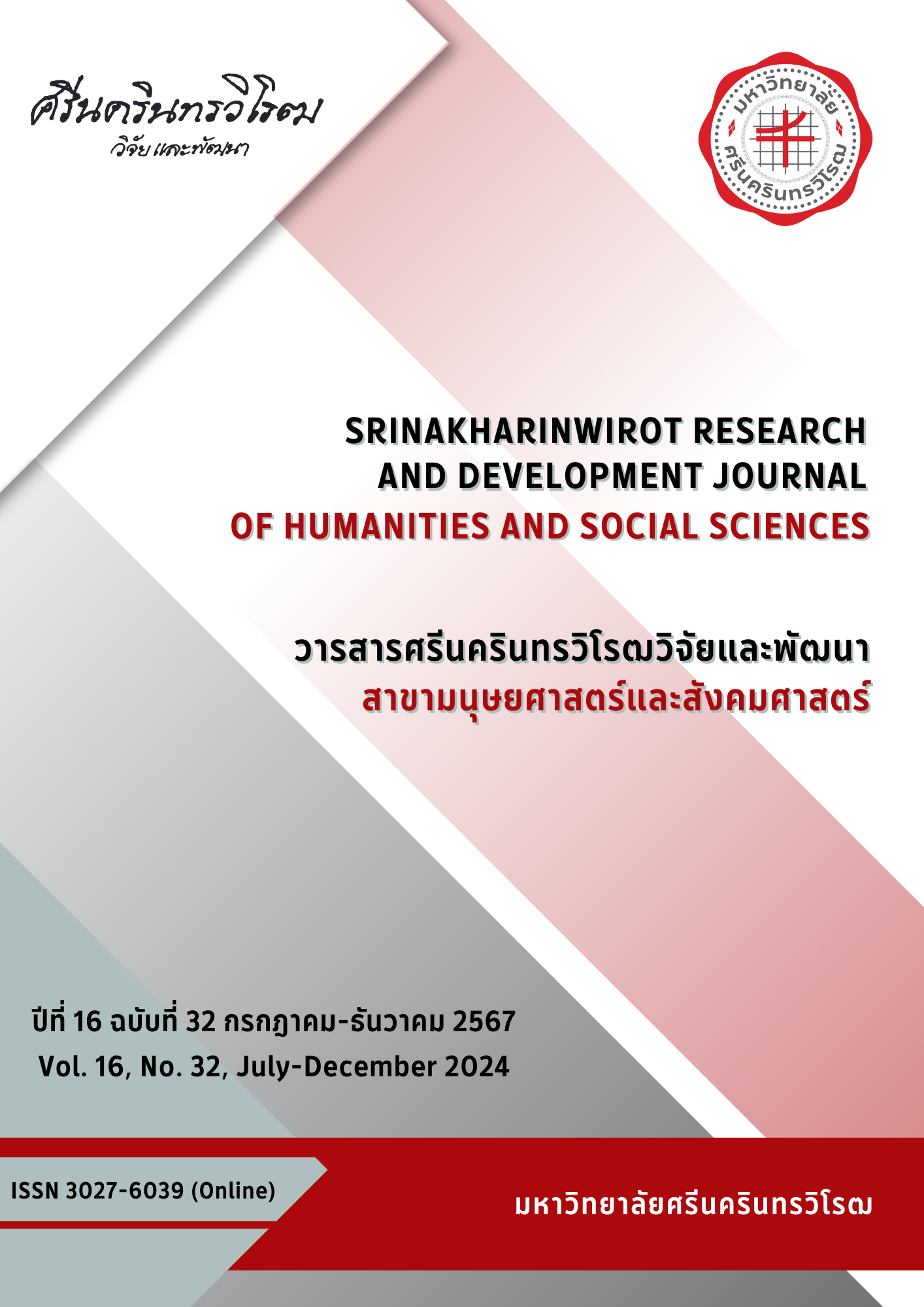EFFECTS OF ANTHROPOMORPHISM THROUGH ILLUSTRATION, NEED FOR COGNITION, AND ARGUMENT QUALITY ON ATTITUDES TOWARD USING REUSABLE WATER BOTTLE OF COLLEGE STUDENTS
Keywords:
Pro-Environmental Behavior, Attitude, Anthropomorphism, Persuasion, Elaboration Likelihood ModelAbstract
The present research aims to study effects of anthropomorphism, need for cognition, and argument quality on attitudes toward using reusable water bottle of college students on campus. In this experiment, 222 undergraduate students reported their need for cognition, then were randomly assigned to read either strong or weak argument in a persuasive message, with either anthropomorphism or non-anthropomorphism illustration before completing a measure of attitudes toward using reusable water bottle on campus, and a thought-listing task. A conditional process analysis via PROCESS [1] showed that there is a significant three-way interaction between anthropomorphism, need for cognition, and argument quality on attitudes toward using reusable water bottle (b = -.05, p<.05). Simple slope tests show significant effects of need for cognition on attitudes toward using reusable water bottle when the message contains weak argument and anthropomorphism illustration (b = .03, p<.01), and also when the message contains strong argument quality and non-anthropomorphism illustration (b = .04, p<.05). These findings are important for understanding the effects of anthropomorphism on pro-environmental attitudes.
Downloads
References
Hayes, A. F. (2013). Introduction to mediation, moderation, and conditional process analysis: A regression-based approach. Guilford publications. https://doi.org/10.1111/jedm.12050
Shotyk, W., Krachler, M., and Chen, B. (2006). Contamination of canadian and european bottled waters with antimony from pet containers. Journal of environmental monitoring, 8(2), 288-292. https://doi.org/10.1039/B517844B
Chula Zero Waste. (2561). พกขวดน้ำใช้ซ้ำได้ VS พกขวดพลาสติก. http://www.chulazerowaste.chula.ac.th/reuse-bottle-vs-plastic-bottle/
Van Der Linden, S. (2015). Exploring beliefs about bottled water and intentions to reduce consumption: The dual-effect of social norm activation and persuasive information. Environment and Behavior, 47(5), 526-550. https://doi.org/10.1177/0013916513515239
Patumtaewapibal, A., and Boonyasiriwat, W. (2020). The effect of health consciousness on reusable bottle behavior from the theory of planned behavior perspective. Human Behavior, Development and Society, 21(4). 26-34.
Petty, R. E., and Cacioppo, J. T. (1986). The elaboration likelihood model of persuasion. In Communication and persuasion (pp. 1-24). Springer. https://doi.org/10.1007/978-1-4612-4964-1_1
Cacioppo, J. T., and Petty, R. E. (1982). The need for cognition. Journal of Personality and Social Psychology, 42(1), 116-131. https://doi.org/10.1037/0022-3514.42.1.116
Cacioppo, J. T., Petty, R. E., and Feng Kao, C. (1984). The efficient assessment of need for cognition. Journal of Personality Assessment, 48(3), 306-307. https://doi.org/10.1207/s15327752jpa4803_13
Tam, K.-P., Lee, S.-L., and Chao, M. M. (2013). Saving Mr. Nature: Anthropomorphism enhances connectedness to and protectiveness toward nature. Journal of Experimental Social Psychology, 49(3), 514-521. https://doi.org/10.1016/j.jesp.2013.02.001
Ketron, S., and Naletelich, K. (2019). Victim or beggar? Anthropomorphic messengers and the savior effect in consumer sustainability behavior. Journal of Business Research, 96, 73-84. https://doi.org/10.1016/j.jbusres.2018.11.004
Epley, N., Waytz, A., and Cacioppo, J. T. (2007). On seeing human: A three-factor theory of anthropomorphism. Psychological Review, 114(4), 864-886. https://doi.org/10.1037/0033-295X.114.4.864
Reich, N., and Eyssel, F. (2013). Attitudes towards service robots in domestic environments: The role of personality characteristics, individual interests, and demographic variables. Paladyn, Journal of Behavioral Robotics, 4(2), 123-130. https://doi.org/10.2478/pjbr-2013-0014
ธีระพร อุวรรณโณ. (2546). เจตคติ. สารานุกรมศึกษาศาสตร์ คณะศึกษาศาสตร์ มหาวิทยาลัยศรีนครินทรวิโรฒ, 53, 38-43.
กฤตภัค วรเมธพาสุข, และหยกฟ้า อิศรานนท์. (2563). อิทธิพลของความคล้ายคลึงเชิงรูปลักษณ์และการรับรู้การควบคุมได้ที่มีผลต่อการรับรู้ความเหมือนมนุษย์ความเชื่อใจและการยอมรับต่อหุ่นยนต์. วารสารศรีนครินทรวิโรฒวิจัยและพัฒนา (สาขามนุษยศาสตร์และสังคมศาสตร์), 12(24), 1-14.
ธีรวีร์ จิตมหนิรันดร์, ฐานวีร์ พงศ์พศวัต, และณัฐวุฒิ หาญสุวัฒน์. (2557). ความสัมพันธ์ระหว่างการมีสติ ความต้องการทางปัญญา และการเรียนรู้โดยไม่รู้ตัว : การศึกษาในโรงเรียนระดับมัธยมศึกษาตอนปลาย ในจังหวัดศรีสะเกษ. โครงงานระดับปริญญาบัณฑิต สาขาวิชาจิตวิทยา คณะจิตวิทยา จุฬาลงกรณ์มหาวิทยาลัย.
Belsley, D. A., Kuh, E., and Welsch, R. E. (2005). Regression diagnostics: Identifying influential data and sources of collinearity. John Wiley & Sons. https://doi.org/10.1002/0471725153
Downloads
Published
How to Cite
Issue
Section
License
Copyright (c) 2024 Srinakharinwirot Research and Development Journal of Humanities and Social Sciences

This work is licensed under a Creative Commons Attribution-NonCommercial-NoDerivatives 4.0 International License.
Srinakharinwirot Research and Development Journal of Humanities and Social Sciences is licensed Under a Creative Commons Attribution-NonCommercial-NoDerivs 4.0 International (CC-BY-NC-ND 4.0) License, Unless Otherwise Stated. Please Read Journal Policies Page for More Information on Open Access, Copyright and Permissions.



